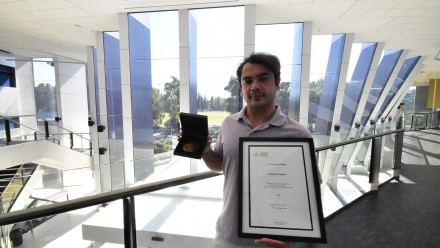Osteoimmunology, miRNA regulation and genetic risk factors in biomaterial related chronic inflammation and osteolysis in total joint replacement surgery
Osteolysis is one of the causes that lead to the failure of total joint replacement (TJR). The failure of TJR requires revision surgery which is considered one of the most complex procedures in modern orthopaedics. Wear debris is known to impact on a variety of cellular responses and genes in multiple pathways associated with the development of the periprosthetic osteolysis and chronic inflammation. Negative regulation of mRNA translation by microRNA (miRNAs) has emerged as an important regulation of osteogenic signalling pathways, osteoblast growth and differentiation, osteoclast-mediated bone resorption activity and bone homeostasis in the adult skeleton. However, our understanding of how miRNAs control the regulatory interplay among multiple layers of mRNA regulation in osteolysis is minimal. We therefore propose that novel correlations exist between the differentially expressed mRNAs and miRNAs expressions of multiple signalling pathways in osteolysis/chronic inflammation. Using the latest Next Generation Sequencing technologies, we are investigating miRNA expression profiles in human trabecular bone, synovial fluid and plasma sourced from TJR revision surgery where wear particle associated osteolysis was evident. The ultimate goals are to contribute to the development of better predictive markers, treatments, and prevention strategies.This research has in part supported by Australian Orthopaedic Association (AOA) Research Foundation.











